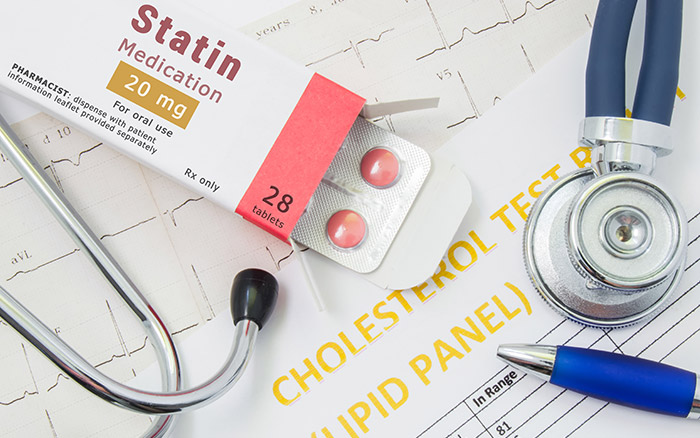- Home
- About Us
- Advanced Testing
- Nutrition & Self-Care
- Further Learning
- New Member Info
- Contact
The SloCo1b1 test helps identify patients whose are at increased risk of developing side effects on statin drugs (medications prescribed to lower cholesterol and prevent heart attacks and strokes). 60% of patients who stop taking their statin drug cite muscle pain (myalgias) as their primary reason for discontinuation. 1 However, some of these patients may simply lack sufficient vitamin d or coenzyme q10, and fixing these deficiencies could improve their symptoms. In one study of over 600 statin patients, 92% of the patients with myalgias and low vitamin D levels had resolution of myalgias with vitamin D treatment (despite staying on their statin). 7 However, some patients could truly be statin intolerant due to a genetic variant, which the SloCo1b1 test will detect.

There are about 50 transporters in the liver that help the body utilize medications (move them into cells). SloCo1b1 is the transporter gene involved in hepatic uptake and metabolism of statins. Inherited abnormalities affect this transporter’s ability to metabolize statins . . . meaning statins will be less effective in these patients and may cause more myopathy (muscle aches, spasms, weakness and/or pain).
Though statins can still be prescribed to patients with a SloCo1b1 variant, water-soluble statins* are best tolerated in these individuals (so this genetic test helps us best tailor medication selection for each individual).

There are three possible combinations of the SloCo1b1 gene:
NO alleles T/T (valine/valine) = normal statin metabolizer
ONE allele T/C (valine/alanine) = decreased statin metabolizer. This equates with less LDL-C lowering response and up to a 4.5-fold increased risk of myopathy on statin therapy.
BOTH alleles C/C (alanine/alanine) = markedly decreased statin metabolizer. This equates with less LDL-C lowering and up to a 17-fold increased risk of myopathy on statin therapy.
*Water-soluble statins: Rosuvastatin (Crestor), Pravastatin (Pravachol), and Pitavastatin (Livalo) Fat-soluble statins: Atorvastatin (Lipitor) and Simvastatin (Zocor)
Do something today for a better tomorrow!
Make an appointment now for advanced testing. We are here to help.
REFERENCES
1 – Wei MY et. al. J Clin Lipidol. 7(5):472-483
2 – Link E, et al. N Engl J Med. 2008;359(8):789–99.
3 - The SEARCH Collaborative Group. N Eng J Med. 2008;359:789-799.
4 – Niemi M, Pasanen MK, Neuvonen PJ. Pharmacol Rev. 2011;63:157-181.
5 – Voora D, Shah SH, Spasojevic I, et al. J Am Coll Cardiol. 2009;54:1609-1616.
6 – https://www.sciencedaily.com/releases/2013/07/130724195945.htm
7 - Ahmed, W., et. al. Transl. Red. 2009 Jan:153(1):11-6.